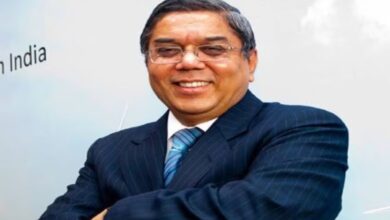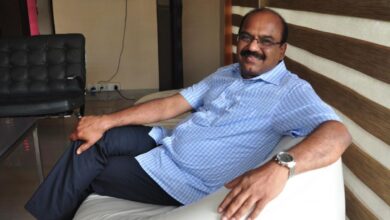Government tightens rules for social media, OTT platforms

Weeks after a spat with Twitter, the government on Thursday announced the tightening of rules governing social media and streaming companies, requiring them to take down contentious content quicker, appoint grievance redressal officers and assist investigations.
The ‘Intermediary Guidelines and Digital Media Ethics Code’, that IT and Communications Minister Ravi Shankar Prasad said are designed to curb misuse of social media platforms, requires WhatsApp, Facebook, Twitter and other social media firms as well as streaming services such as Netflix, YouTube and Amazon Prime Video to appoint executives to coordinate with law enforcement, disclose the first originator of the mischievous information and remove, within 24 hours, content depicting nudity or morphed pictures of women.
Any contentious content flagged by the government or legal order has to be taken down quickly.
The guidelines require social media intermediaries to appoint a resident grievance officer, who shall register complaints in 24 hours, and file monthly compliance reports. User grievances have to be resolved within 15 days.
Also, social media platforms on being asked by court or government will be required to disclose the first originator of the mischievous information that undermines the sovereignty of India, security of the state, or public order.
The intermediary, however, will not be required to disclose the contents of any message.
Beyond streaming and messaging, the code will also set guidelines for digital publishers of news and current affairs content, requiring them to disclose their ownership and other information.
Releasing the guidelines, Prasad said the code was needed to make social media and OTT companies accountable for “misuse and abuse”.
Social media firms should be “more responsible and accountable,” he said.
The new guidelines follow the government’s spat with Twitter over allegedly inflammatory tweets and hashtags supporting farmer protests, with the microblogging service initially refusing to comply with orders to take down about 1,500 such posts and accounts. Twitter complied after it was threatened with the penal action.
Separately, an Amazon Prime Video original series ‘Tandav’ was ordered by authorities to be re-edited following protests over its depiction of Hindu gods and goddesses.
Freedom-of-speech activists and technology trade groups had previously criticised the draft version of the new rules, which replace a previous code from 2011, saying they would result in increased censorship and reduced user privacy.
The new rules take effect immediately, though significant social-media providers (based on number of users) will get three months before they need to start complying.
Prasad said concerns have been raised over the rampant abuse of social media platforms and the spread of fake news.
“Social media companies are welcome to do business in India and empower Indians. We welcome criticism and dissent but it is important that users of social media are given a proper forum for the resolution of their grievances in a time-bound manner,” he said.
India is a large market for digital and social media companies and is witnessing strong growth on the back of booming smartphone sales and the availability of dirt-cheap data.
The country has 53 crore WhatsApp users, 44.8 crore YouTube users, 41 crore Facebook users, 21 crore use Instagram and 1.75 crore are on Twitter.
Prasad said the rules require the ‘significant’ social media intermediaries to follow additional due diligence including the appointment of a chief compliance officer, a nodal contact person and a resident grievance officer. All three officials will have to reside in India. They will have to publish monthly compliance report and detail contents removed proactively.
The rules also state that users who voluntarily want to verify their accounts should be given an appropriate mechanism to do so and be accorded a visible mark of verification.
Users will have to be provided with a prior intimation and explanation when a significant social media intermediary removes content on its own. In such cases, users have to be provided an adequate and reasonable opportunity to dispute the action taken by the intermediary.
Rules related to social media will be administered by the Ministry of Electronics and IT, while those related to Code of Ethics and procedure and safeguards in relation to digital media will be administered by the Ministry of Information and Broadcasting.
On rules related to over-the-top (OTT) and digital media, the government said, guidelines have been framed keeping in mind the difference between viewership in a theatre and television, as compared to watching it on the internet.
A Code of Ethics and three-tier grievance redressal mechanism would be applicable for news publishers, OTT platforms and digital media.
OTT platforms would have to self-classify the content into five age-based categories – U (Universal), U/A 7+ (years), U/A 13+, U/A 16+, and A (Adult).
Information and Broadcasting (I&B) Minister Prakash Javadekar said such platforms would be required to implement parental locks for content classified as U/A 13+ or higher, and reliable age-verification mechanisms for content classified as ‘A’.
The publishers of online curated content will also have to prominently display the classification rating specific to a programme together with a content descriptor, he added.
Publishers of news on digital media would be required to observe Norms of Journalistic Conduct of the Press Council of India and the Programme Code under the Cable Television Networks Regulation Act, providing a level-playing field between the offline (print, TV) and digital media, an official statement said.
“Digital media portals have no right to spread rumour. The media’s freedom is absolute but with reasonable restrictions. Content matter, especially media, OTT and digital media will be administered by I&B ministry. Intermediary platforms monitoring will be done by the IT ministry in the manner they have been doing it,” he said.




